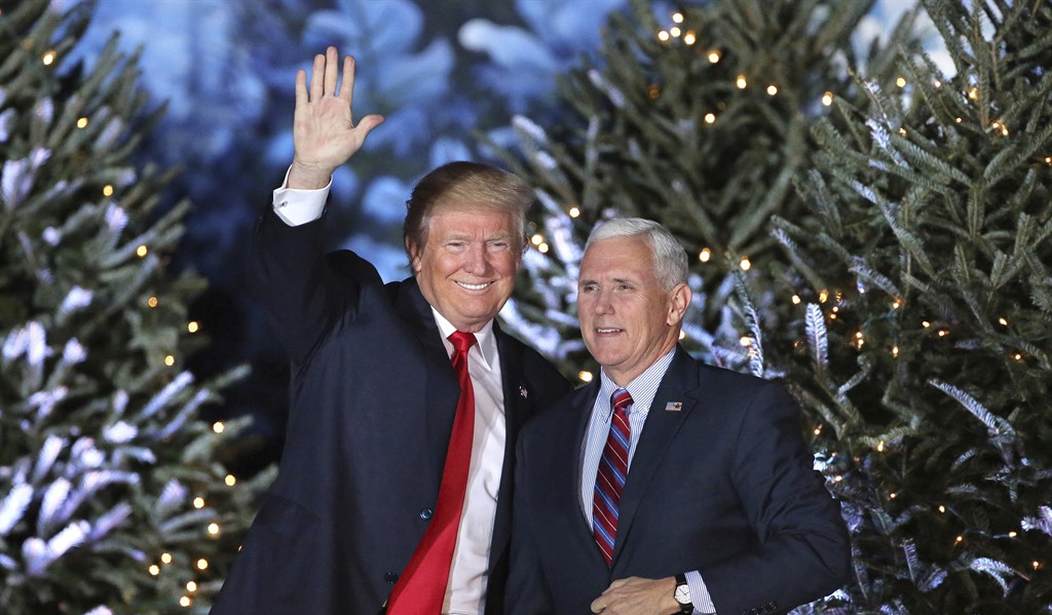UPDATE: The Republican National Committee, celebrating Trump's win, told Democrats that enough is enough.
It’s official. Donald Trump has won the 2016 election after clinching the 270 votes needed to become the 45th president of the United States. The margin of Trump’s Electoral College win, coupled with election laws that bind electors to the winner of the statewide result in some states, made efforts to block Trump a long shot effort. The Left and some anti-Trump Republicans had hoped that enough electors would jump ship, but the Associated Press was able to survey 330 of the 538 electors, noting that Trump had enough to officially clinch the presidency. And that there was virtually zero interest in fomenting an internal rebelling within the college to block the president-elect from assuming his duties as president come January 20.
BREAKING: Donald Trump wins more than 270 Electoral College votes to formally become president-elect pic.twitter.com/JjvuWg06IE
— The Associated Press (@AP) December 19, 2016
In the end, The Hill reports that President-elect Donald J. Trump garnered 304 electoral votes. ABC News reported that several states are still voting. The results will be certified by the House of Representatives in January:
Texas' 36 electoral votes for Trump pushed him over the edge at around 4:30 Central Time, even though two rogue electors' defections deprived Trump of one of those votes. That gave Trump 304 total electoral votes.The Republican-controlled Congress, a body even more unlikely to be swayed by pressure than the Electoral College, will certify the vote on Jan. 6.
Recommended
The rogue group called Hamilton Electors tried to lobby Republican electors to abandon Trump and vote for Ohio Gov. John Kasich. Kasich vehemently discouraged this action and two judges tossed out a lawsuit filed by two Colorado electors that would release them from a state law that bound their vote to the statewide winner. Yes, a few Democrats aren’t happy about voting to Clinton. Yet, that legal decision was the death knell for this short-lived movement, as they probably could not lobby enough defectors, which wasn’t going to happen anyway, with states that have binding election laws with their electors; 29 states have such laws. Should an elector decide to go against his or her state election law, they’re replaced and could face legal charges.
Even former Obama adviser David Axelrod said that a rebellion within the Electoral College would be destructive to the country:
"Look, Alexander Hamilton conceived of the Electoral College and the founding fathers as a buffer against democracy run amok, as a safe guard against someone who was unsuited for the office to take the office," Axelrod said on CNN's "New Day.""But it's never been used in the history of our Republic," he continued.
“To have it happen now, despite the fact that Hillary Clinton won the popular vote and all that's swirling around with Russia and so on," he said, "I believe would split the country apart in a really destructive way and it would set this mad cycle in which every election the Electoral College vote would be in question.”
Axelrod, a former senior adviser to President Obama, said he expects the president-elect to get enough electoral votes Monday to seal his victory, when electors meet in state legislatures throughout the country.
Donald Trump will be sworn in as the 45th president of the United States on January 20.
























Join the conversation as a VIP Member